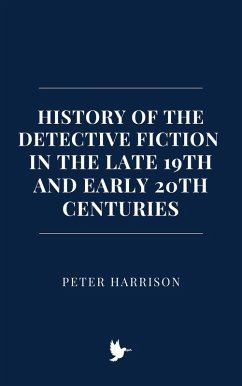The book delves into the influence of scientific advancements, such as the rise of forensic science, and the role of new psychological theories in shaping the portrayal of both detectives and criminals. It considers how the genre navigated the changing dynamics of urban life, exploring themes of alienation, class tension, and the complex moral landscape of burgeoning metropolises like London, Paris, and New York. Detective fiction is shown to be a mirror of cultural shifts, adapting to the disillusionment of the post-war era, the social revolutions of the 1960s, and the challenges posed by the digital age.
Throughout, the study highlights how detective fiction has remained relevant by evolving its narrative forms and incorporating diverse voices and perspectives, from female detectives to characters from marginalized communities. It also addresses the genre's lasting impact on literature, film, and popular culture, showing how the detective figure has become a timeless archetype-a symbol of the search for truth and meaning in a world of uncertainty.
By tracing the development of detective fiction through various cultural and historical lenses, this book offers a comprehensive analysis of why the genre continues to captivate readers. It provides insight into how detective stories serve as a reflection of our ongoing quest to understand the complexities of human behavior, the nature of justice, and the ever-present allure of a well-crafted mystery.
Dieser Download kann aus rechtlichen Gründen nur mit Rechnungsadresse in A, B, CY, CZ, D, DK, EW, E, FIN, F, GR, H, IRL, I, LT, L, LR, M, NL, PL, P, R, S, SLO, SK ausgeliefert werden.









